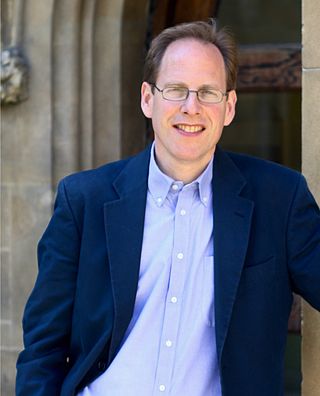Related Research Articles

Asperger syndrome (AS), also known as Asperger's syndrome, formerly described a neurodevelopmental disorder characterized by significant difficulties in social interaction and nonverbal communication, along with restricted and repetitive patterns of behavior, interests, and activities. The syndrome has been merged with other disorders into autism spectrum disorder (ASD) and is no longer considered a stand-alone diagnosis. It was considered milder than other diagnoses that were merged into ASD by relatively unimpaired spoken language and intelligence.

Diagnoses of autism have become more frequent since the 1980s, which has led to various controversies about both the cause of autism and the nature of the diagnoses themselves. Whether autism has mainly a genetic or developmental cause, and the degree of coincidence between autism and intellectual disability, are all matters of current scientific controversy as well as inquiry. There is also more sociopolitical debate as to whether autism should be considered a disability on its own.

Sir Simon Philip Baron-Cohen is a British clinical psychologist and professor of developmental psychopathology at the University of Cambridge. He is the director of the university's Autism Research Centre and a Fellow of Trinity College.

The autism rights movement, also known as the autistic acceptance movement, is a social movement allied with disability rights that emphasizes a neurodiversity paradigm, viewing autism as a disability with variations in the human brain rather than as a disease to be cured. The movement advocates for several goals, including greater acceptance of autistic traits and behaviors; reforms of services - i.e. services that focus on improving quality of life and well-being instead of suppression and masking of autistic traits that are adaptive or not harmful or imitations of social behaviors of neurotypical (non-autistic) peers ; the creation of social networks and events that allow autistic people to socialize on their own terms; and the recognition of the autistic community as a minority group.
The following outline is provided as an overview of and topical guide to autism:
Mind-blindness, mindblindness or mind blindness is a theory initially proposed in 1990 that claims that all autistic people have a lack or developmental delay of theory of mind (ToM), meaning they are unable to attribute mental states to others. According to the theory, a lack of ToM is considered equivalent to a lack of both cognitive and affective empathy. In the context of the theory, mind-blindness implies being unable to predict behavior and attribute mental states including beliefs, desires, emotions, or intentions of other people. The mind-blindness theory asserts that children who delay in this development will often develop autism.

The heritability of autism is the proportion of differences in expression of autism that can be explained by genetic variation; if the heritability of a condition is high, then the condition is considered to be primarily genetic. Autism has a strong genetic basis. Although the genetics of autism are complex, autism spectrum disorder (ASD) is explained more by multigene effects than by rare mutations with large effects.
The epidemiology of autism is the study of the incidence and distribution of autism spectrum disorders (ASD). A 2022 systematic review of global prevalence of autism spectrum disorders found a median prevalence of 1% in children in studies published from 2012 to 2021, with a trend of increasing prevalence over time. However, the study's 1% figure may reflect an underestimate of prevalence in low- and middle-income countries.
The autism-spectrum quotient (AQ) is a questionnaire published in 2001 by Simon Baron-Cohen and his colleagues at the Autism Research Centre in Cambridge, UK. Consisting of fifty questions, it aims to investigate whether adults of average intelligence have symptoms of autism spectrum conditions. More recently, versions of the AQ for children and adolescents have also been published.
The empathising–systemising (E–S) theory is a theory on the psychological basis of autism and male–female neurological differences originally put forward by English clinical psychologist Simon Baron-Cohen. It classifies individuals based on abilities in empathic thinking (E) and systematic thinking (S). It measures skills using an Empathy Quotient (EQ) and Systemising Quotient (SQ) and attempts to explain the social and communication symptoms in autism spectrum disorders as deficits and delays in empathy combined with intact or superior systemising.
The weak central coherence theory (WCC), also called the central coherence theory (CC), suggests that a specific perceptual-cognitive style, loosely described as a limited ability to understand context or to "see the big picture", underlies the central issue in autism and related autism spectrum disorder. Autism is a neurodevelopmental disorder characterized by impaired social interaction and communication, repetitive behaviours, restricted interests, and sensory processing issues.

Societal and cultural aspects of autism or sociology of autism come into play with recognition of autism, approaches to its support services and therapies, and how autism affects the definition of personhood. The autistic community is divided primarily into two camps; the autism rights movement and the Pathology paradigm. The pathology paradigm advocates for supporting research into therapies, treatments, and/or a cure to help minimize or remove autistic traits, seeing treatment as vital to help individuals with autism, while the neurodiversity movement believes autism should be seen as a different way of being and advocates against a cure and interventions that focus on normalization, seeing it as trying to exterminate autistic people and their individuality. Both are controversial in autism communities and advocacy which has led to significant infighting between these two camps. While the dominant paradigm is the pathology paradigm and is followed largely by autism research and scientific communities, the neurodiversity movement is highly popular among most autistic people, within autism advocacy, autism rights organizations, and related neurodiversity approaches have been rapidly growing and applied in the autism research field in the last few years.

Autism Speaks Inc. is a non-profit autism awareness organization and the largest autism research organization in the United States. It sponsors autism research and conducts awareness and outreach activities aimed at families, governments, and the public. It was founded in February 2005 by Bob Wright and his wife Suzanne, a year after their grandson Christian was diagnosed with autism. The same year as its founding, the organization merged with Autism Coalition for Research and Education. It then merged with the National Alliance for Autism Research in 2006 and Cure Autism Now in 2007.

Autism, formally called autism spectrum disorder (ASD) or autism spectrum condition (ASC), is a neurodevelopmental disorder marked by deficits in reciprocal social communication and the presence of restricted and repetitive patterns of behavior. Other common signs include difficulty with social interaction, verbal and nonverbal communication, along with perseverative interests, stereotypic body movements, rigid routines, and hyper- or hyporeactivity to sensory input. Autism is clinically regarded as a spectrum disorder, meaning that it can manifest very differently in each person. For example, some are nonspeaking, while others have proficient spoken language. Because of this, there is wide variation in the support needs of people across the autism spectrum.
The Autism Research Centre (ARC) is a research institute that is a part of the Department of Developmental Psychiatry at the University of Cambridge, England.
Diagnosis, treatment, and experiences of autism varies globally. Although the diagnosis of autism is rising in post-industrial nations, diagnosis rates are much lower in developing nations.
Sex and gender differences in autism exist regarding prevalence, presentation, and diagnosis.

Current research indicates that autistic people have higher rates of LGBT identities and feelings than the general population. A variety of explanations for this have been proposed, such as prenatal hormonal exposure, which has been linked with both sexual orientation, gender dysphoria and autism. Alternatively, autistic people may be less reliant on social norms and thus are more open about their orientation or gender identity. A narrative review published in 2016 stated that while various hypotheses have been proposed for an association between autism and gender dysphoria, they lack strong evidence.

The theory of the double empathy problem is a psychological and sociological theory first coined in 2012 by Damian Milton, an autistic autism researcher. This theory proposes that many of the difficulties autistic individuals face when socializing with non-autistic individuals are due, in part, to a lack of mutual understanding between the two groups, meaning that most autistic people struggle to understand and empathize with non-autistic people, whereas most non-autistic people also struggle to understand and empathize with autistic people. This lack of understanding may stem from bidirectional differences in communication style, social-cognitive characteristics, and experiences between autistic and non-autistic individuals, but not necessarily an inherent deficiency. Recent studies have shown that most autistic individuals are able to socialize, communicate effectively, empathize well, and display social reciprocity with most other autistic individuals. This theory and subsequent findings challenge the commonly held belief that the social skills of autistic individuals are inherently impaired, as well as the theory of "mind-blindness" proposed by prominent autism researcher Simon Baron-Cohen in the mid-1980s, which suggested that empathy and theory of mind are universally impaired in autistic individuals.

Damian Elgin Maclean Milton is a British sociologist and social psychologist who specialises in autism research and an autism rights advocate. He is a lecturer at the University of Kent as well as a consultant for the United Kingdom's National Autistic Society and has academic qualifications in sociology, psychology, philosophy, and education.
References
- ↑ "10,000 autistic people to take part in the UK's largest study of autism". University of Cambridge. August 24, 2021.
- ↑ "ARC Volunteers - Spectrum 10K". parent.spectrum10k.org.
- 1 2 3 4 Sanderson, Katharine (27 September 2021). "High-profile autism genetics project paused amid backlash". Nature. 598 (7879): 17–18. Bibcode:2021Natur.598...17S. doi:10.1038/d41586-021-02602-7. PMID 34580484. S2CID 238202946.
- ↑ "Spectrum 10K". Health Research Authority.
- ↑ "Why Autistic People Are Worried by Spectrum 10K | Psychology Today United Kingdom". www.psychologytoday.com.
- ↑ Rubino, Sebastian (August 29, 2021). "Spectrum 10k: The Fallacy of Genetic Autism Studies".
- ↑ "What is the Spectrum 10K study into autism - and why are autistic people concerned?". www.indy100.com. August 29, 2021.
- ↑ "PLAIN TEXT OF THE FULL BOYCOTT S10K STATEMENT". September 4, 2021.
- 1 2 Pring, John (4 November 2021). "Autistic campaigners' anger over Spectrum 10K protest lock-out and 'scare tactics'". Disability News Service.
- ↑ Dattaro, Laura (2022-05-27). "Spectrum 10K gets green light from ethics agency". Spectrum. doi: 10.53053/OAMY4481 . S2CID 249143253 . Retrieved 2022-12-08.